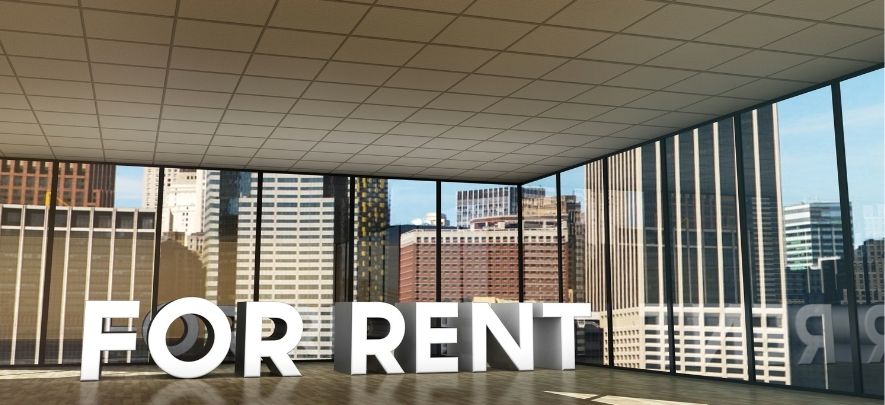Impact of Covid on the rental market

Property & Real Estate
174 week ago — 9 min read
Coronavirus was first detected in China; the pandemic infected citizens of 185 countries. The coronavirus pandemic has had an unexpected, sudden, and, at the same time, a significant impact on people's lives and businesses. During these challenging times, about 2,6 billion people worldwide were, to this or that extent, locked in their homes under the quarantine rules. The Covid-19's pandemic is still moving quickly in some parts of the world, affecting how we live, work, and invest. Its spread continues to make businesses count the costs. The number of people filling in the unemployment forms in some countries, e.g., in the USA, has hit record-high levels. Job uncertainties, wage cuts, and numerous businesses' failures only add fuel to the already difficult economic situation.
Coronavirus effect on the economic sentiment
The modern world dictates specific rules for business owners and entrepreneurs. Economies of the large cities are closely integrated, so if anything happens in one part of the world - it will have a medium or a substantial impact on the other regions. With its 2nd largest economy globally, China is primarily responsible for supplies of goods and services. But, due to the virus outbreak, it has faced much lower demands for exports of products. Local citizens could not go to study at foreign universities and colleges, and the business confidence in this region is nowadays not as strong as it used to be. The USA, Italy, India, Spain, UK, Russia, and Germany are those countries that have the highest coronavirus cases and whose economic paces are significantly slower.
It is over three months since the world has been set on strict regulations connected with quarantine. Yet, even now, there is no way to tell precisely how enormous economic damage the pandemic will cause, but there is a widespread agreement among experts that the impacts will be rather severe. Early estimates predicted that most major economies would lose at least 2,4% of their GDP value over this year.
However, since early April, several businesses and governments across the world have begun to re-open. Surveys nowadays point to a better outlook. Yet, the executives feel more negative than positive in the expectations for the global economy. They state that different industries and regions will go through various obstacles to return to everyday life. Factors that may deter businesses' recovery include weaker consumer demand, volatile financial markets, value-chain disruptions, etc.
Also read: Worried about COVID-19 impacting your business? Critical steps to build momentum
Covid-19 and the global commercial real estate stock
The pandemic has caused panic not only regarding health issues but also business ones. With millions of people out of work, and non-essential businesses urgently closed, the CRE industry's outlook becomes increasingly grim.
JLL, CBRE, S&P Global Rating, and other companies analyse the volatility of the global commercial real estate market under the current circumstances and try to express some forecasts for the nearest future.
Based on the latest data from Oxford Economics - the leader in global forecasting and quantitative analysis, various commercial real estate sectors will likely face different scenarios and outcomes. Let us look at how experts define the state of affairs in the office, industrial, and retail submarkets:
-
Industrial sector
This type of estate can deal with the economic recession, being one of the most resistant submarkets to the outer impacts. And, several factors prove their vitality. The majority of people are now shopping online, pushing warehouses to become new retail spaces. Supply-chain breakdowns caused by the pandemic crisis may motivate retailers and manufacturers to keep and hold more inventories.
Construction activity is intense in this sector, which leads to the vacancy rates rising and rental fees falling, starting from before-the-pandemic times and continuing this trend. In the USA, for example, following the base-case scenario, the industrial property values will drop by 13% over four quarters, while the rents will fall to approximately 1,7%. In the case of a positive outcome, the recovery will return to normal levels in just two quarters.
-
Retail sector
Unsurprisingly, the retail submarket is one of the hardest hit of all commercial real estate. Government mandates have announced the closure of all non-essential chains in a majority of locations. The absorption rates were negative, and this severe downside model will likely be seen in the nearest future. The retail sector stands to lose space as lots of stores will close over the next five years. An eCommerce penetration will also rise as the Covid-19's pandemic will hasten the sector's disruption, already caused by online shopping.
-
Office sector
The main impact on the office sector is the current emphasis on remote work and social distancing measures. Reports state that numerous companies have intentions to shift at least some teams of their workers to a permanent work-from-home basis after the pandemic is over. Post coronavirus times project demand losses in the office sector, while entrepreneurs and business proprietors will implement more flexible working schedules to decrease overcrowding in their physical venues. The rental rates for long-term tenancy agreements will be under pressure. Still, this situation also has a positive side. Stable, well-capitalised tenants will have more opportunities to negotiate deals for top-quality venues for a more extended period.
Nobody argues that the traditional office working culture will experience changes. Still, there is one submarket in the office sector, resilient to those shifts. Regardless of their actual working places and schedules, tenants can rent a virtual office or any other award-winning and dynamic commercial hub in the world and use the address of this or that particular city as their official business one. The services virtual offices propose will likely be the same as they are offered nowadays. This type of office is an ideal one for a good start after a global economic storm.
Hotels, restaurants, and other estates from the hospitality sector suffered from pandemic challenges too. It will take much time and lots of effort from the landlords for these businesses to revive their work to the fullest.
Summing up
A truly global phenomenon Covid-19 has changed people's lives in a way they have never imagined. The working world has quickly moved from usual methods to office closures, work-from-home mandates, and cautious travelling. Many consumers have tightened their expenditures to only essential things and services because of losing jobs. The demand for numerous workspaces has gone down, and it is probably the first time in modern memory. To respond to the virus's current threat, the landlords will have to take smart actions and alter strategies. Most tenants have been asking their leaseholders for some sort of assistance to prolong their rental contracts. On average, both landlords and tenants have been hit equally hard.
No doubt there will be a good deal of euphoria when the shops, restaurants, offices, and other workspaces can finally re-open for business – but all sectors of the commercial real estate industry will emerge from this crisis with far more debt than they had when it started.
Also read: COVID 19 – Smart survival for self and business
To explore business opportunities, link with me by clicking on the 'Connect' button on my eBiz Card.
Image source: shutterstock.com
Disclaimer: The views and opinions expressed in this article are those of the author and do not necessarily reflect the views, official policy or position of GlobalLinker
Posted by
Lucas ScottAt matchoffice.com we will help you find a perfect office space solution in Dubai that matches all your criteria.
View Lucas 's profile
Most read this week













Comments
Please login or Register to join the discussion